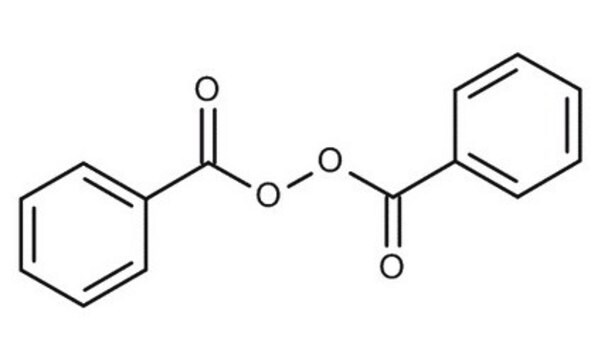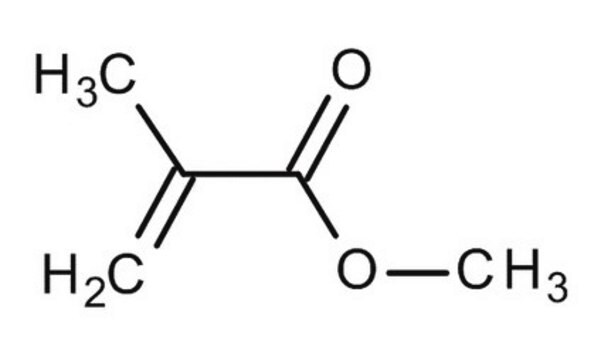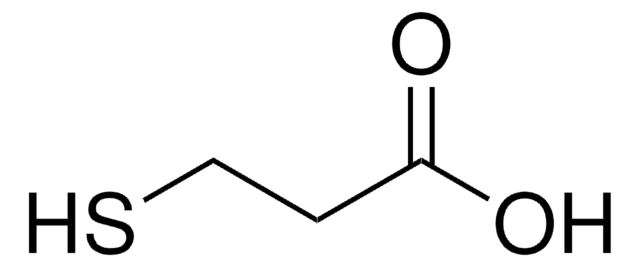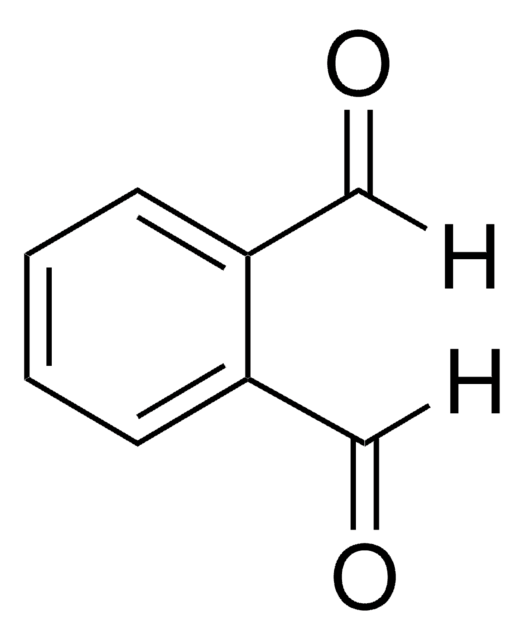8.05740
2-Mercaptoethanol
for synthesis
Synonym(s):
Thioethylene glycol, Thioglycol, β-Mercaptoethanol, 2-Hydroxyethylmercaptan, BME, Thioethylene glycol
About This Item
Recommended Products
vapor density
2.69 (vs air)
Quality Level
vapor pressure
1 mmHg ( 20 °C)
Assay
≥99% (GC)
form
liquid
autoignition temp.
295 °C
potency
98-162 mg/kg LD50, oral (Rat)
112-224 mg/kg LD50, skin (Rabbit)
expl. lim.
18 %
reaction suitability
reagent type: reductant
concentration
14.3 M (pure liquid)
refractive index
n20/D 1.500 (lit.)
pH
4.5-6 (20 °C, 500 g/L in H2O)
bp
157 °C (lit.)
mp
<-50 °C
transition temp
flash point 70.5 °C
density
1.114 g/mL at 25 °C (lit.)
storage temp.
2-30°C
SMILES string
OCCS
InChI
1S/C2H6OS/c3-1-2-4/h3-4H,1-2H2
InChI key
DGVVWUTYPXICAM-UHFFFAOYSA-N
Application
Signal Word
Danger
Hazard Statements
Precautionary Statements
Hazard Classifications
Acute Tox. 2 Dermal - Acute Tox. 3 Inhalation - Acute Tox. 3 Oral - Aquatic Acute 1 - Aquatic Chronic 2 - Eye Dam. 1 - Repr. 2 - Skin Irrit. 2 - Skin Sens. 1A - STOT RE 2 Oral
Storage Class Code
6.1A - Combustible, acute toxic Cat. 1 and 2 / very toxic hazardous materials
WGK
WGK 3
Flash Point(F)
165.2 °F - closed cup
Flash Point(C)
74 °C - closed cup
Certificates of Analysis (COA)
Search for Certificates of Analysis (COA) by entering the products Lot/Batch Number. Lot and Batch Numbers can be found on a product’s label following the words ‘Lot’ or ‘Batch’.
Already Own This Product?
Find documentation for the products that you have recently purchased in the Document Library.
Customers Also Viewed
Our team of scientists has experience in all areas of research including Life Science, Material Science, Chemical Synthesis, Chromatography, Analytical and many others.
Contact Technical Service











